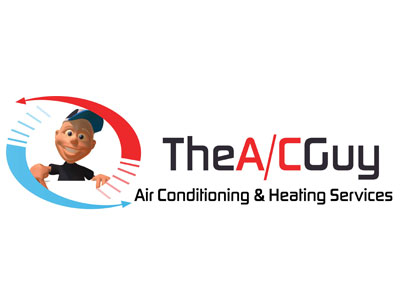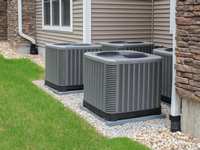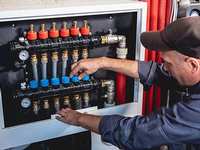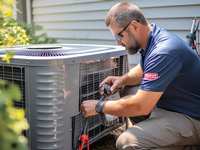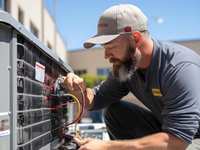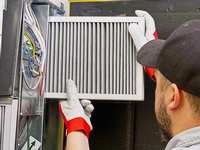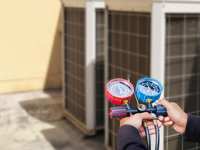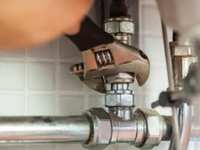Troubleshooting AC Freezing Up Issues: Causes, Prevention, and Repair Tips
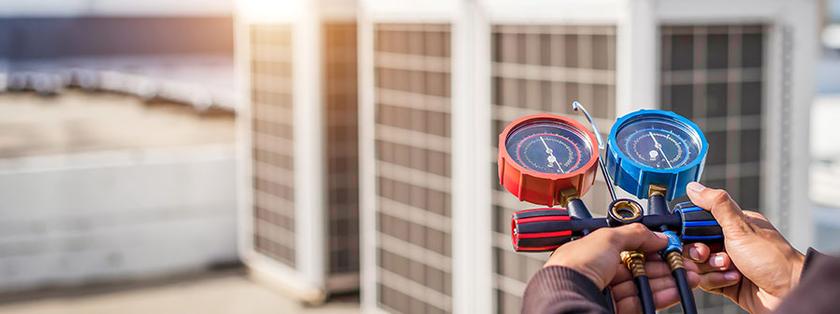
As the scorching summer heat arrives, your air conditioner works overtime to keep your home cool. But suddenly, you notice problems like reduced airflow or your AC blowing warm air. Your unit might be freezing up.
AC freezing disrupts cooling and can cause severe damage if left unchecked. Read this guide to understand what causes AC units to freeze, learn how to diagnose and troubleshoot freezing issues, and get tips to prevent AC freezing in summer.
What Causes an Air Conditioner to Freeze Up?
Air conditioners remove heat and humidity from indoor air to provide cool comfort. But why does an AC freeze up when its purpose is cooling?
Some common causes of AC freezing include:
Low Refrigerant Levels: Not having enough refrigerant can make the evaporator coil extremely cold and freeze.
Poor Airflow: Restricted airflow due to a dirty filter, blocked vents, or closed registers causes freezing.
Faulty Thermostat: A malfunctioning thermostat that makes the AC run nonstop leads to overcooling and freezing up.
Refrigerant Leaks: Leaks make the AC run longer to achieve the cooling effect, resulting in the evaporator coil icing up.
Extreme Low Outdoor Temps: Very low ambient temperatures can also contribute to freezing-up issues.
Problems like an old AC system, dirty evaporator coil, and fan motor issues can also cause freezing in some cases.
Detecting and resolving the underlying problem is crucial for preventing repeat freezing issues.
How to Troubleshoot an AC Freezing Up
Follow these troubleshooting steps if you suspect your air conditioner is freezing up:
1. Turn Off the AC
Switch off your air conditioning system immediately to prevent further ice buildup and damage.
2. Inspect the Unit
Examine the condensing unit for ice formation on the copper pipes and around the coil. Signs of frost indicate freezing issues.
3. Check the Air Filter
A blocked filter restricts airflow, so inspect the filter and ensure it's clean. Replace filters older than 60 days.
4. Verify Airflow
Make sure all vents and registers are open and unobstructed. Restricted airflow can result in freezing.
5. Look for Leaks
Inspect the refrigerant lines and evaporator coil for visible leaks. Refrigerant leaks can reduce cooling capacity.
6. Test the Thermostat
Make sure your thermostat is functioning correctly and set to the right temperature. Faulty thermostats can overcool the air.
7. Let Ice Thaw
Allow any ice buildup to melt completely before restarting the AC system to avoid damage.
If issues persist after troubleshooting, contact a qualified HVAC technician for repair services.
Signs Your AC Needs Professional Repairs
Schedule service from an HVACcompany like The AC Guy if you notice these signs of problems:
- Reduced cooling and lack of cold air
- Higher energy bills and increased electricity usage
- Unusual noises, e.g. grinding, buzzing
- Visible damage to components like coils
- Water leaking near the indoor air handler unit
- Ice buildup on the outdoor AC refrigerant lines or coils
- Odd smells from the vents
Don't delay repairs, as seemingly minor issues can worsen over time.
Common AC Repairs and Maintenance
Here are some everyday maintenance tasks and repairs AC professionals perform:
Refrigerant Recharge: Adding refrigerant to reach optimal levels improves cooling capacity.
Evaporator Coil Cleaning: Removing dirt, debris, and bio-buildup improves airflow over the coil.
Condensate Drain Cleaning: Clearing clogged drains prevents water overflow problems.
Fan Motor Repair: Fixing motor issues restores proper airflow.
Thermostat Calibration: Adjusting thermostat settings prevents overcooling.
Refrigerant Leak Repairs: Sealing leaks allows proper refrigerant circulation.
Regular professional maintenance tuning up your AC can identify issues early before they worsen.
Preventing Air Conditioner Freezing
Take these preventative measures to lower freezing risks during summer:
Clean Filters Frequently: Dirty, clogged filters reduce airflow and can cause freezing. Replace filters per the manufacturer's guidelines, generally every 30-90 days.
Annual Maintenance: Schedule yearly maintenance before summer to ensure your AC functions properly. Technicians inspect refrigerant levels, coil condition, airflow, and more.
Check Supply Vents: Ensure return and supply vents are unobstructed so air flows freely.
Use a Smart Thermostat: Smart thermostats maintain optimal temperatures and help prevent overcooling and freezing.
Monitor Ambient Temps: Take note of low outdoor temperatures at night and adjust system settings accordingly to limit the risk of freezing.
Routine AC maintenance goes a long way in preventing common issues like freezing and breakdowns.
Upgrade to a New Energy Efficient AC
If your air conditioner is over 10 years old, consider upgrading to a newer energy-efficient system. New AC units like Lennox and Trane models with features like:
- Variable Speed Compressors
- Improved Coil Designs
- Refrigerant Monitoring
- Smart Thermostats
Provide enhanced performance and freezing protection.
Consult an HVAC professional to determine if upgrading your AC makes sense. They can ensure your new unit is sized correctly and installed for maximum efficiency.

